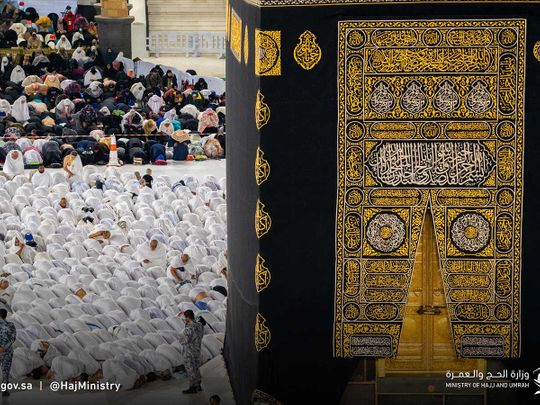
Cairo: Saudi Arabia has announced a comprehensive plan aimed at ensuring environmental compliance during the annual Islamic Hajj pilgrimage this month.
The plan, unveiled by the Saudi National Centre for Environmental Compliance, involves daily monitoring to uphold the quality of air, water, and soil as pilgrims engage in their rituals.
Over 1,500 Hajj-related sites and installations will be subject to pro-environment oversight, with a focus on protecting the environment in areas traversed by pilgrims on their journey to sacred sites.
Additionally, authorities will conduct tests on water supplies to the holy cities of Mecca and Medina, which house Islam’s holiest mosques, before, during, and after the Hajj, slated to begin this year on June 14.
Also read
- Eid Al Adha 2024: Saudi Arabia urges Muslims to sight Dhu Al Hijjah crescent moon on Thursday evening
- Saudi Arabia warns of above-average heat during Hajj
- Saudi Arabia: Over 74 million visited Prophet’s Mosque in first quarter of this year
- Saudi Arabia: Expats found performing Hajj rituals without permit face SR10,000 fine, deportation
Continuous monitoring of air quality will occur around the clock at the two holy mosques and other sacred sites, as well as along the roads connecting them, according to the governmental centre.
As part of the plan, daily reports will be submitted to relevant agencies to mitigate any identified negative impacts. With an anticipated attendance of over 2 million Muslims from around the world, Saudi agencies are intensifying efforts to manage the influx of pilgrims.
Approximately 1 million overseas Muslims have already arrived in Saudi Arabia for the Hajj, as reported by Saudi authorities.
Hajj, one of Islam’s five obligatory duties, requires Muslims who are physically and financially capable to perform it at least once in their lifetime.












